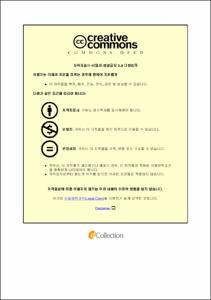중국어 ‘结束’에 대응하는 한국어 ‘그만두다/그치다/끝나다/끝내다/마치다’의 연구
- Abstract
- There are times when a Korean word does not correspond to the word’s literal translation in a different language. One example is the Chinese word ‘jieshu’, which corresponds to Korean ‘geumanduda/geuchida/kkeutnada/kkeutnaeda/machida’. When the words of foreign native language do not correspond to that of Korean, there is an advantage in that one can replace that Korean word with diverse kinds of more appropriate words. However, every word carries a different nuance based on the context, so using different words could be difficult. Choosing the right word for the right situation could be easy for native Korean speakers, but it could be a great challenge for non-native Korean speakers.
This study aims to compare and contrast the Chinese word ‘jieshu’ and Korean words ‘geumanduda/geuchida/kkeutnada/kkeutnaeda/machida’ by exploring the grammatical information, dictionary definition, the collocations of these words and adverb co-occurrence relation, so that the Chinese native speakers will be accurately able to use the Korean words that properly correspond to ‘jieshu’. This study consists of 5 chapters with the following contents.
Chapter 1 explains the main purpose, method, and subject of the study. This study aims to compare and contrast the Chinese word ‘jieshu’ and Korean words ‘geumanduda/geuchida/kkeutnada/kkeutnaeda/machida’ so that Chinese learners trying to learn Korean can accurately choose the right word.
Chapter 2 studies the grammatical information of the Korean words ‘geumanduda/geuchida/kkeutnada/kkeutnaeda/machida’, the classifies the worlds based on the information found in the dictionary.
Chapter 3 examines the sentence information. This examines sentence pattern information about these Korean verbs, and studies the sentence information of the Korean words ‘geumanduda/geuchida/kkeutnada/kkeutnaeda/machida’. We examine the sentence information in the existing dictionary, especially intransitive verb, transitive verb, and a dual verb between an intransitive verb and a transitive verb. In addition to recognizing‘geumanduda/geuchida/kkeutnada/kkeutnaeda/machida’s the sentence type in the existing dictionary, we also explore more abouts the sentence type information in corpus. Beyond just basic sentence types, this study also compares and contrasts the words by studying the negative statement sentence type structure.
Chapter 4 clarifies the difference between the words by looking at the collocations and co-occurring adverbs of the words ‘geumanduda/geuchida/kkeutnada/kkeutnaeda/machida’. The intransitive verb anlayzed subject-predicate collocation, and the transitive verb analyzed verb-object collocation. In case of a dual verb between an intransitive verb and a transitive verb anlayzed subject-predicate collocation and verb-object collocation both of them. In addition, the difference was clarified by analyzing adverb co-occurrence relation of ‘geumanduda/geuchida/kkeutnada/kkeutnaeda/machida’.
Chapter 5 summarizes this study and aims to suggest to Korean education based on the study of the words ‘geumanduda/geuchida/kkeutnada/kkeutnaeda/machida’. This study has discussed the meaning, grammatical structure, and collocation information of the Korean words ‘geumanduda/geuchida/kkeutnada/kkeutnaeda/machida’ that correspond to the Chinese word ‘jieshu’. This study is meaningful in that it finds the similarity and differences among the multiple Korean words that correspond to the Chinese word ‘jieshu’.
This study has been conducted in anticipation that this study will help in case the Korean word does not correspond to one’s native language. It is expected that diverse linguistic studies will be conducted for the benefit of Korean language learners. | 외국인 학습자의 모국어 어휘와 한국어 어휘의 의미가 일대일 대응하지 않는 경우가 있다. 중국어 단어 ‘结束’가 그러한 경우인데, 한국어 ‘그만두다/그치다/끝나다/끝내다/마치다’와 대응한다. 외국인 학습자의 모국어 어휘와 한국어 어휘의 의미가 일대일 대응하지 않는 경우 모국어 단어의 의미를 한국어 어휘로의 사용에 있어서 여러 가지 표현의 다양성을 가진다는 장점이 있지만, 의미에서 미묘한 차이를 보이기 때문에 구분과 사용이 어렵다는 단점이 있다. 한국어를 모국어로 사용하는 사람들에게는 이러한 어휘의 구별은 큰 어려운 일이 아니지만, 외국인 학습자에게는 어렵고, 모호한 일이다.
본고에서는 중국어 ‘结束’에 대응하는 한국어 ‘그만두다/그치다/끝나다/끝내다/마치다’를 대상으로 삼아 문법 정보와 사전 의미, 문형 정보 그리고 연어 정보 및 공기 부사를 살펴보는 것을 통하여 공통점과 차이점을 파악하고 중국인 학습자가 ‘结束’에 대응하는 한국어 어휘 사용에 있어 정확하게 사용할 수 있는 것을 목적으로 한다. 본고의 구성은 모두 5장으로 구성되어 있고, 각 장의 내용은 다음과 같다.
제 1 장에서는 본고의 연구 목적을 설명하고, 연구 대상과 연구 방법에 대해 구체적으로 제시하였다. 본고의 연구는 중국인 학습자들이 중국어 단어 ‘结束’에 대응하는 한국어 단어를 변별하여 올바르게 사용할 수 있게 하기 위하여 ‘그만두다/그치다/끝나다/끝내다/마치다’를 대상으로 분석하여 그 공통점과 차이점을 변별하고자 했다.
제 2 장은 ‘그만두다/그치다/끝나다/끝내다/마치다’의 문법적 정보에 대해 알아보았고, 사전에 나타난 정보를 바탕으로 사전적 의미를 구분했다.
제 3 장에서는 문형 정보에 대해 알아본다. 한국어 동사의 기본 문형에 대해 알아보고, ‘그만두다/그치다/끝나다/끝내다/마치다’ 각각의 문형 정보를 알아본다. 기존 사전에서의 문형 정보를 알아보는데, 세부적으로 자동사/타동사/양용동사별 문형에 대해 알아본다. 기존 사전에서의 문형을 알아보는 것뿐만 아니라, 말뭉치에 나타난 ‘그만두다/그치다/끝나다/끝내다/마치다’의 문형 정보와 실현 양상에 대해 추가로 알아냈다. 기본 문형에서 나아가 연구 대상의 부정문 문형 구조 또한 알아봄으로써 그 공통점과 차이점을 찾아냈다.
제 4 장에서는 ‘그만두다/그치다/끝나다/끝내다/마치다’의 연어 정보와 공기 부사에 대해 알아봄으로써 각 단어별 차이를 명확히 했다. 자동사는 주술 관계의 연어 정보에 대해 분석했고, 타동사는 목술 관계의 연어 정보에 대해 분석했다. 양용동사의 경우 주술 관계 연어, 목술 관계 연어 정보 두 가지 모두 분석했다. 더하여 ‘그만두다/그치다/끝나다/끝내다/마치다’와 공기하는 부사 정보에 대하여 분석함으로써 그 차이를 명확히 했다.
마지막으로 제 5 장에서는 본 연구를 요약하고 이를 바탕으로 ‘그만두다/그치다/끝나다/끝내다/마치다’에 대해 한국어 교육에의 제언하는 것으로 결론을 대신한다.
본 연구에서는 중국어 ‘结束’에 대응하는 한국어 ‘그만두다/그치다/끝나다/끝내다/마치다’의 의미와 문형, 연어 정보에 대해 살펴보았으며 중국어 단어 ‘结束’에 대응하는 한국어 어휘 간의 공통점과 차이점을 찾는다는 점에서 논문의 의미가 있다고 생각된다.
본 연구의 결과는 외국인 학습자의 모국어 어휘와 한국어 어휘의 의미가 일대일 대응하지 않는 경우 올바른 학습에 도움이 되기를 기대한다. 앞으로 한국어 학습자들을 위하여 다양한 분야에서 연구가 진행되길 기대한다.
- Issued Date
- 2022
- Awarded Date
- 2022-02
- Type
- dissertation
- Alternative Author(s)
- WANG YUAN
- Affiliation
- 울산대학교
- Department
- 일반대학원 한국어학과
- Advisor
- 유필재
- Degree
- Master
- Publisher
- 울산대학교 일반대학원 한국어학과
- Language
- kor
- Rights
- 울산대학교 논문은 저작권에 의해 보호 받습니다.
- Appears in Collections:
- Korean Education > 1. Theses (Master)
- 파일 목록
-
-
Download
 200000603184.pdf
기타 데이터 / 756.99 kB / Adobe PDF
200000603184.pdf
기타 데이터 / 756.99 kB / Adobe PDF
-
Items in Repository are protected by copyright, with all rights reserved, unless otherwise indicated.